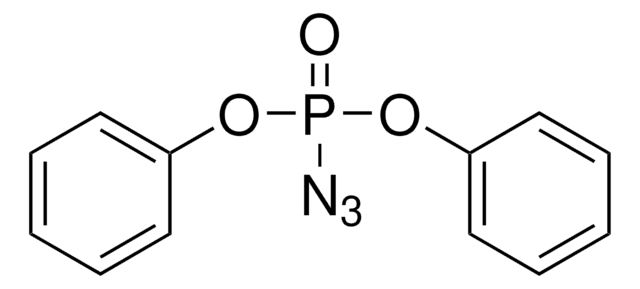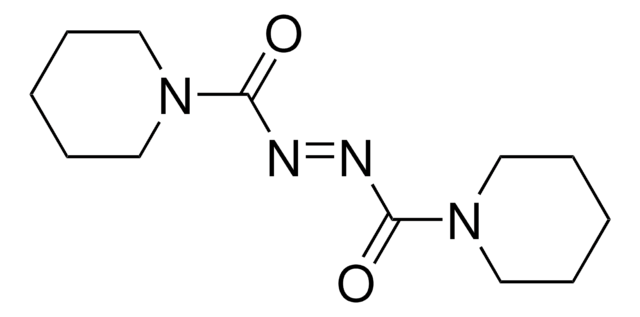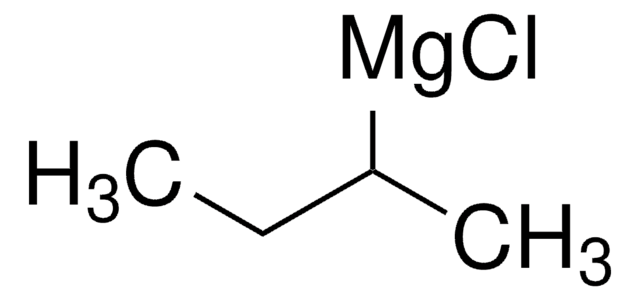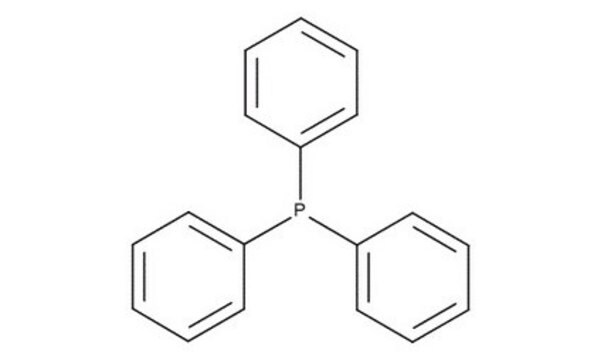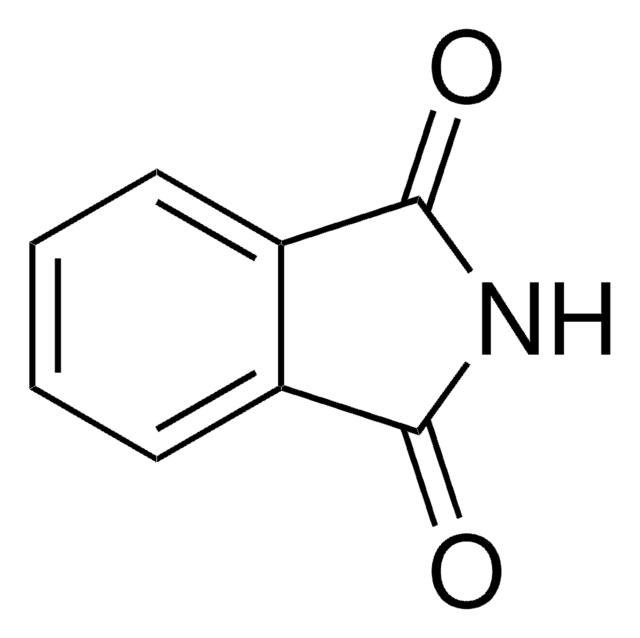225541
Diisopropyl azodicarboxylate
98%
Synonym(s):
DIAD, Diisopropyl azodiformate
About This Item
Recommended Products
Quality Level
Assay
98%
form
liquid
impurities
≤2% dichloromethane
refractive index
n20/D 1.420 (lit.)
bp
75 °C/0.25 mmHg (lit.)
density
1.027 g/mL at 25 °C (lit.)
storage temp.
2-8°C
SMILES string
CC(C)OC(=O)\N=N\C(=O)OC(C)C
InChI
1S/C8H14N2O4/c1-5(2)13-7(11)9-10-8(12)14-6(3)4/h5-6H,1-4H3/b10-9+
InChI key
VVWRJUBEIPHGQF-MDZDMXLPSA-N
Looking for similar products? Visit Product Comparison Guide
General description
Application
- Chromenes resembling classical cannabinoids
- MK-3281 inhibitor of the hepatitis C virus NS5B polymerase
- Norbornene-based guanidine-rich polymers as mimcs of cell-penetrating peptides (CPP)
- Analogues of the Pseudomonas aeruginosa quorum-sensing molecule N-(3-Oxododecanoyl)-l-homoserine lactone with immunosuppressive but non-LasR-inducing properties
- Acceptor-donor-acceptor organic dyes for dye-sensitized solar cells
- 1,3-dioxane-2-carboxylic acid derivatives as PPARα/γ dual agonists
- Hydrazinophosphonates and hydrazinobisphosphonates via Mitsunobu and Arbuzov-type multicomponent application of the Morrison-Brunn-Huisgen betaine
Signal Word
Warning
Hazard Statements
Precautionary Statements
Hazard Classifications
Aquatic Chronic 2 - Carc. 2 - Eye Irrit. 2 - Skin Irrit. 2 - STOT SE 3
Target Organs
Respiratory system
Storage Class Code
10 - Combustible liquids
WGK
WGK 2
Flash Point(F)
222.8 °F
Flash Point(C)
106 °C
Personal Protective Equipment
Regulatory Listings
Regulatory Listings are mainly provided for chemical products. Only limited information can be provided here for non-chemical products. No entry means none of the components are listed. It is the user’s obligation to ensure the safe and legal use of the product.
EU REACH Annex XVII (Restriction List)
Certificates of Analysis (COA)
Search for Certificates of Analysis (COA) by entering the products Lot/Batch Number. Lot and Batch Numbers can be found on a product’s label following the words ‘Lot’ or ‘Batch’.
Already Own This Product?
Find documentation for the products that you have recently purchased in the Document Library.
Customers Also Viewed
Articles
One of the most powerful and widely used carboncarbon bond forming reactions in organic synthesis is the Mitsunobu reaction.
Our team of scientists has experience in all areas of research including Life Science, Material Science, Chemical Synthesis, Chromatography, Analytical and many others.
Contact Technical Service
